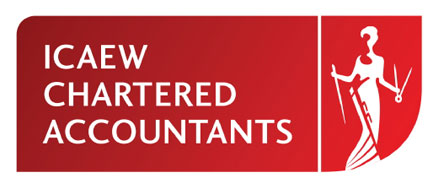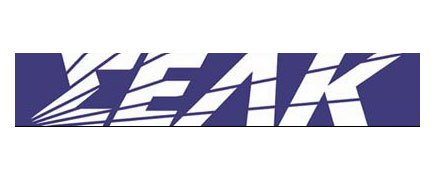Diamond Defies Pressure, Pledges to Complete Review
July 04,2012
Barclays Plc (BARC) Chief Executive Officer Robert Diamond resisted pressure to quit after the bank was fined for rigging interest rates, saying he has the “full support” of directors.
“No one is more sorry, disappointed and angry about these events than I am,” Diamond wrote in a letter to employees today. “We all know that these events are not representative of our culture, and it is my responsibility to get to the bottom of that and resolve it.”
Diamond commented after Marcus Agius resigned as chairman in a bid to shield him after the bank was fined a record 290 million pounds ($451 million). British lawmakers are pushing for his resignation after U.K. and U.S. regulators found the lender “systematically” attempted to rig the London and euro interbank offered rates for profit.
Agius’s departure “will do little to appease the many who see Bob Diamond as having primary responsibility,” Gary Greenwood, a banking analyst at Shore Capital, said by e-mail. “While Agius’s departure will grab the headlines today, the bigger issue remains whether Diamond should also remain.”
Diamond has been called to appear before British lawmakers on the Treasury Select Committee on July 4 and Agius the day after. Prime Minister David Cameron today announced a parliamentary inquiry into the U.K. banking industry to be headed by the chairman of Parliament’s Treasury committee Andrew Tyrie.
Public Report
Michael Rake, who was today named deputy chairman, will oversee an inquiry into the bank’s business practices, the lender said today. The panel, to be run by an independent outsider and a group of non-executive directors, will produce a public report of its findings.
Diamond pledged to bolster the controls surrounding the firm’s Libor submissions and take “appropriate action” against those involved with rigging the benchmark interest rate. That includes clawing back compensation and asking people to resign, he said.
“Of course, given the nature of the authorities involved, the investigations were accompanied by criminal inquiries, and some of those are still under way,” Diamond said. “I have reviewed the actions that I set out above in detail with Marcus and the other non-executive directors. We have their full support.”
Barclays closed up 3.4 percent at 168.40 pence in London, valuing the lender at 20.6 billion pounds. The stock has fallen 13 percent since the fine was announced on June 27, making it this year’s worst performer in the six-member FTSE 350 banks index.
‘Truly Sorry’
“I am truly sorry,” Agius, who had been chairman of Britain’s second-largest bank by assets since 2007, said in a statement today. “Last week’s events, evidencing as they do unacceptable standards of behavior within the bank, have dealt a devastating blow to Barclays’s reputation.”
John Sunderland, a Barclays director and former chairman of Cadbury Schweppes Plc, will oversee a search for a replacement, the London-based lender said. Agius, 65, will remain in his position until his successor is appointed.
“Politicians will see this as Agius taking a bullet for Bob Diamond,” said Christopher Wheeler, a London-based banking analyst at Mediobanca SpA. “They realized they needed to do something, and Agius was chairman during the time they got fined for — but will it be enough?”
Succession Plan?
Diamond, who built up and ran the securities unit during the period being probed by regulators, may keep his job because he has no obvious successor, according to Chirantan Barua, an analyst at Sanford Bernstein Research in London. None of the bank’s largest shareholders have publicly called for Diamond’s resignation so far.
“Barclays has become the poster child for this because they have been the first to be assessed by the regulators on both sides of the Atlantic,” Euan Stirling, who manages U.K. stocks at Standard Life Investments, told the British Broadcasting Corp.’s Today program. “This is going to spread far and wide throughout the industry.”
Diamond, 60, his three top lieutenants, Chief Operating Officer Jerry del Missier, Finance Director Chris Lucas and corporate and investment banking chief Rich Ricci have already forfeited their bonuses for this year following the fines.
Lazard Career
Agius joined Barclays after a 34-year career at Lazard Ltd., where he had been chairman of the firm’s London unit. There, he advised on banking takeovers including Halifax Group Plc’s 2001 merger with Bank of Scotland to create HBOS Plc. As non-executive chairman of BAA Plc, Agius helped the owner of London’s Heathrow airport negotiate a higher takeover price from Grupo Ferrovial SA in 2006.
He had already faced investor pressure when the lender raised more than 5 billion pounds in 2008 from a group of funds from Abu Dhabi and Qatar without giving existing shareholders the opportunity to buy new stock. Shareholders including Legal & General Group Plc complained at the time their pre-emption rights had been ignored, and in protest about 16 percent of investors opposed Agius’s re-election as chairman in April 2009.
He also had to apologize to shareholders for failing to communicate the firm’s pay plans to investors clearly in April after 27 percent of shareholders voted against Diamond’s 12 million-pound compensation package.
Agius also stepped down today as chairman of the British Bankers’ Association, the industry lobby group that oversees Libor.
Manipulated
Libor is determined by about 18 banks’ daily estimates of how much it would cost them to borrow from one another for different time frames and in different currencies. Because banks’ submissions aren’t based on real trades, the potential exists for the benchmark to be manipulated by traders.
At least a dozen firms, including Citigroup Inc., Royal Bank of Scotland Group Plc and UBS AG, are being probed by regulators worldwide for colluding to rig the rate, the benchmark for more than $360 trillion of securities, including mortgages, student loans and swaps.
Barclays deliberately reported artificially low borrowing costs at the height of the 2008 financial market turmoil after discussing external perceptions about the bank’s strength with regulators at the Bank of England.
Barclays “believed mistakenly that they were operating under an instruction from the Bank of England” to lower its Libor submissions, according to Britain’s Financial Services Authority. At that time, Barclays was concerned about how it was being perceived due to its higher Libor submissions relative to other banks whose reported borrowing costs helped set the rate.
‘Misunderstanding’
The Bank of England didn’t instruct Barclays to lower its Libor submissions during the phone call, the FSA said. Instead, a “misunderstanding or miscommunication” occurred within Barclays as the substance of the conversation was relayed down the chain of command, the FSA said. Paul Tucker, who was markets director at the time and is now the central bank’s deputy governor for financial stability, led the call, according to the Bank of England.
The central bank “spoke directly to Bob Diamond and it was Bob Diamond’s instructions to the traders,” said Jane Coffey, head of equities at Royal London Asset Management, which owns Barclays shares in its index-linked funds. “That misunderstanding was through Bob Diamond.”
Barclays traders routinely coordinated with counterparts from at least four other banks in an attempt to move interest rate benchmarks, according to documents released on June 27 by the U.S. Commodity Futures Trading Commission, the U.S. Justice Department and the U.K. Financial Services Authority.
Profit Motive
Derivatives traders requested the false submissions in the Libor and Euribor setting process, as they were “motivated by profit and sought to benefit Barclays’ trading positions,” the FSA said.
Tyrie, the chairman of Parliament’s Treasury committee, said Diamond will have to answer questions about who profited from the firm’s false submissions and who at Barclays knew about them, according to an interview with the Daily Mail.
“There appear to have been at least two motives for the rigging of Libor,” Tyrie was cited as saying in the interview. “The first was to enable traders to make a profit. The second was to support share prices at a crucial time — and that is something that might reasonably be considered the responsibility of the relevant companies as a whole.”
The U.K. Serious Fraud Office said today it plans to decide within a month whether to open a criminal investigation. The U.S. Justice Department is conducting its own criminal probe into the attempted manipulation of interbank offered rates.
FSA Chairman Adair Turner said yesterday the Barclays fine shows regulator needs more powers to bring criminal charges.
“Further steps were made a few years ago to give us the ability to bring criminal charges in particular areas of market abuse, but they did not cover the Libor market,” Turner said in an interview on the British Broadcasting Corp.’s “Andrew Marr Show.” “We now have to look further and see whether we should strengthen these powers considerably.”



